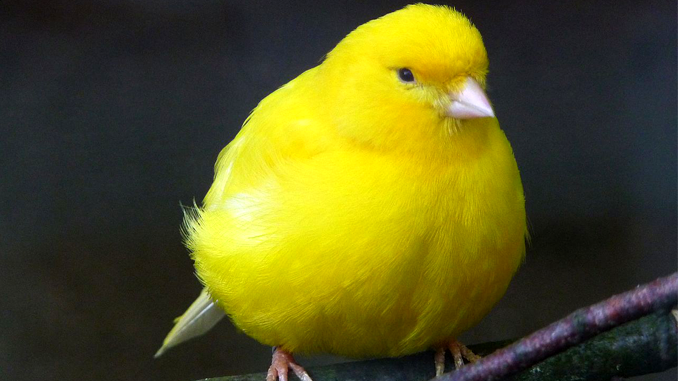
With the World Wide Web turning 30 its inventor Al ‘The Goracle Sex Poodle’ Gore British computer scientist Tim Berners-Lee laments it “isn’t serving humanity well” and wants everyone to ‘grow up,” it was the perfect opportunity for old news to make new rounds.
At its ripe old age of 30 and with half the globe using it, the World Wide Web is facing growing pains with issues like hate speech, privacy concerns and state-sponsored hacking, its creator says.
Tim Berners-Lee joined a celebration Tuesday of the Web and reminisced about where he invented it — at CERN, the European Organization for Nuclear Research — beginning with a proposal published on March 12, 1989.
The 63-year-old Englishman is calling on governments, companies and citizens to work together, and wants the web to become more accessible to those who aren’t online.
Speaking at a “Web@30” conference, Berners-Lee acknowledged that for those who are online, “the web is not the web we wanted in every respect.”
CNBC Make It writes that “Berners-Lee laid out three reasons why the web is dysfunctional, including “perverse incentives” from ad-based business models.”
For Berners-Lee, an open web has been his idea from the beginning, choosing from the outset to “make the underlying code of the World Wide Web available to anyone without a fee.”
Berners-Lee said the system has since been designed with “perverse” incentives, which he sees as the second source of dysfunction in the web today. He singled out ad-based revenue models, used by many tech giants like Google and Facebook, that reward “clickbait and the viral spread of misinformation.” The web’s inventor has previously attacked big tech companies including Facebook, Google and Twitter for exploiting people’s personal data.
“Companies must do more to ensure their pursuit of short-term profit is not at the expense of human rights, democracy, scientific fact or public safety,” he said in the letter Monday.
A prime example of what would be considered perverse incentives comes in the form of “click farms.”
PPC Protect defines ‘click farms’ as being “an undercover operation in which individuals fraudulently interact with a website to artificially boost the status of a client’s website, product or service.”
To many people, click farms sound very mysterious in what they are and how they work. But in reality, click farms are often very low tech and basic. These farms can take many shapes and sizes from a simple 1 man setup to a huge warehouse full of thousands of phones and computers.
If you’re having a hard time imaging what one looks like then don’t worry, here are some actual click farms that have been discovered around the world.
PPC Protect; 25 June 2018
“This click farm from China is relatively low tech and consists of 1 individual who spends all day liking and clicking things on the mobiles.”
— Catrin Nye (@CatrinNye) March 12, 2019
This is very interesting – via @NetworkString > https://t.co/H5qhSD69I9 pic.twitter.com/fvHnG8aT5z
According to The Guardian report in August 2, 2013 How low-paid workers at ‘click farms’ create appearance of online popularity – Investigation finds fake Facebook ‘likes’ and Twitter followers could be misleading consumers.
How much do you like courgettes? According to one Facebook page devoted to them, hundreds of people find them delightful enough to click the “like” button – even with dozens of other pages about courgettes to choose from.
There’s just one problem: the liking was fake, done by a team of low-paid workers in Dhaka, Bangladesh, whose boss demanded just $15 per thousand “likes” at his “click farm”. Workers punching the keys might be on a three-shift system, and be paid as little as $120 a year.
Inc.com reported in January 2014 that if people engage in this underground business niche that developed over the years around the platforms who run their businesses under a model of ‘ad-based revenues’ it can actually screw your business, not help it when they pay click farms for their fake popularity. They describe “4 Ways Click Farms Screw Your Business – Fake followers on Twitter, Facebook, and other social networks can hurt your business more than you think.”
You’ve probably heard about people and companies buying followers on Facebook, Twitter, and heaven knows what other social media networks. So, who cares, it’s just a minor distraction for losers. Right?
How to break this… no, it’s not. Minting followers has become a big business in the social media world. As the Associated Press reported, there’s a global market for this activity that, according to some researchers, might have hit hundreds of millions a year. Last year the U.S. State Department was criticized for spending $630,000 to buy Facebook fans and boost its popularity.
High-tech companies have tried to screen out bot-generated traffic and clicks, restoring a sense of reality to online. Google wiped out many video views on YouTube because enough people have used bot services that create views. Facebook purges users.
It’s more than industry inside baseball. Click farms can have an adverse effect on your business in a number of ways:
Inc.com
YouTube runs the gambit of reporting on the underbelly of click farms to how to create one and ‘Build your phone farm to 100 devices – The cheapest way possible!’
TNB wrote about the Great Twitter Purge when social media platform business finally began purging their fake followers and fake “likes” last July. According to Newsweek report, “over half of President Trump’s followers were, “tweet-less, picture-less accounts that joined the service in May 2017.”
